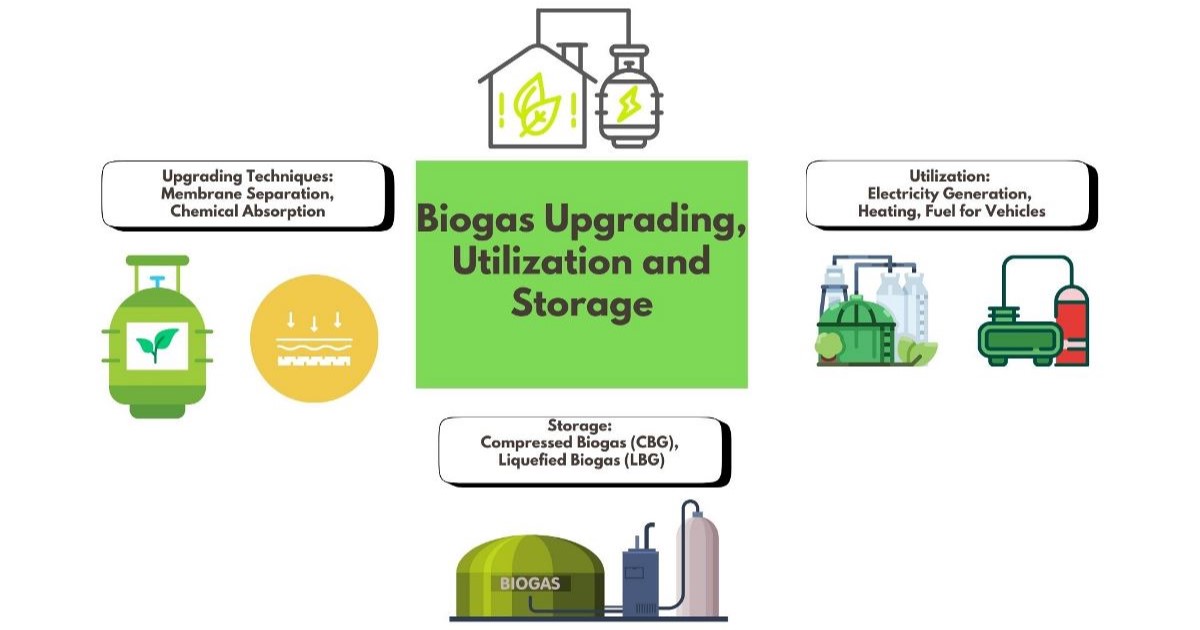Biogas Upgrading, Utilization, and Storage: Latest Advances and Perspectives
A special issue of Processes (ISSN 2227-9717). This special issue belongs to the section "Environmental and Green Processes".
Deadline for manuscript submissions: 15 November 2025 | Viewed by 1758

Special Issue Editor
Interests: biogas; anaerobic digestion; methane production; waste management; composting; extrusion; pelletization; pretreatment of biomass for energy purposes
Special Issues, Collections and Topics in MDPI journals
Special Issue Information
Dear Colleagues,
Biogas upgrading, utilization, and storage have become critical components in the global transition towards sustainable energy systems. Recent advances have focused on enhancing the efficiency, cost-effectiveness, and environmental performance of biogas technologies. Biogas upgrading involves the removal of impurities such as carbon dioxide (CO2), hydrogen sulfide (H2S), moisture, and siloxanes to produce biomethane with a high methane (CH4) content, suitable for grid injection or use as vehicle fuel. Emerging technologies, including membrane separation, cryogenic distillation, and advanced adsorption techniques, are driving improvements in energy efficiency and process reliability.
The utilization of upgraded biogas spans various sectors, from electricity and heat generation to transportation and industrial applications. Innovations in combined heat and power (CHP) systems, fuel cells, and bio-LNG (liquefied biomethane) are expanding the versatility and economic viability of biogas.
Storage solutions are equally crucial, addressing the intermittent nature of biogas production and demand. Advances in high-pressure storage, underground storage, and chemical conversion to synthetic natural gas (SNG) are enhancing the flexibility of biogas and its integration into energy networks.
This Special Issue will explore the latest technological developments, current challenges, and future perspectives in biogas upgrading, utilization, and storage, emphasizing the role of these technologies in achieving energy security and reducing greenhouse gas emissions.
Dr. Kamil Witaszek
Guest Editor
Manuscript Submission Information
Manuscripts should be submitted online at www.mdpi.com by registering and logging in to this website. Once you are registered, click here to go to the submission form. Manuscripts can be submitted until the deadline. All submissions that pass pre-check are peer-reviewed. Accepted papers will be published continuously in the journal (as soon as accepted) and will be listed together on the special issue website. Research articles, review articles as well as short communications are invited. For planned papers, a title and short abstract (about 100 words) can be sent to the Editorial Office for announcement on this website.
Submitted manuscripts should not have been published previously, nor be under consideration for publication elsewhere (except conference proceedings papers). All manuscripts are thoroughly refereed through a single-blind peer-review process. A guide for authors and other relevant information for submission of manuscripts is available on the Instructions for Authors page. Processes is an international peer-reviewed open access monthly journal published by MDPI.
Please visit the Instructions for Authors page before submitting a manuscript. The Article Processing Charge (APC) for publication in this open access journal is 2400 CHF (Swiss Francs). Submitted papers should be well formatted and use good English. Authors may use MDPI's English editing service prior to publication or during author revisions.
Keywords
- biogas upgrading
- anaerobic digestion
- methane production
- gas purification technologies
- waste-to-energy systems
- biogas storage solutions
Benefits of Publishing in a Special Issue
- Ease of navigation: Grouping papers by topic helps scholars navigate broad scope journals more efficiently.
- Greater discoverability: Special Issues support the reach and impact of scientific research. Articles in Special Issues are more discoverable and cited more frequently.
- Expansion of research network: Special Issues facilitate connections among authors, fostering scientific collaborations.
- External promotion: Articles in Special Issues are often promoted through the journal's social media, increasing their visibility.
- Reprint: MDPI Books provides the opportunity to republish successful Special Issues in book format, both online and in print.
Further information on MDPI's Special Issue policies can be found here.





